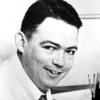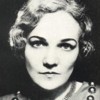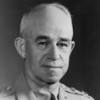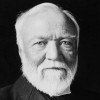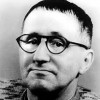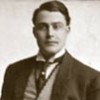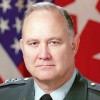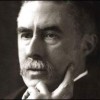I don’t make the infantryman look noble, because he couldn’t look noble even if he tried. Still there is a certain nobility and dignity in combat soldiers and medical aid men with dirt in their ears. They are rough and their language gets coarse because they live a life stripped of convention and niceties. Their nobility and dignity come from the way they live unselfishly and risk their lives to help each other.
Quotations about:
soldier
Note not all quotations have been tagged, so Search may find additional quotes on this topic.
Modern wars are seldom fought without hatred between nations; this serves as a more or less substitute for the hatred between individuals. Even when there is no natural hatred and no animosity to start with, the fighting itself will stir up hostile feelings: violence committed on superior orders will stir up the desire for revenge and retaliation against the perpetrator rather than against the powers that ordered the action. It is only human (or animal, if you like), but it is a fact.
[Der Nationalhaß, an dem es auch bei unseren Kriegen selten fehlt, vertritt bei dem einzelnen gegen den einzelnen mehr oder weniger stark die individuelle Feindschaft. Wo aber auch dieser fehlt und anfangs keine Erbitterung war, entzündet sich das feindselige Gefühl an dem Kampfe selbst, denn eine Gewaltsamkeit, die jemand auf höhere Weisung an uns verübt, wird uns zur Vergeltung und Rache gegen ihn entflammen, früher noch, ehe wir es gegen die höhere Gewalt sein werden, die ihm gebietet, so zu handeln. Dies ist menschlich oder auch tierisch, wenn man will, aber es ist so.]
Karl von Clausewitz (1780-1831) Prussian soldier, historian, military theorist
On War [Vom Kriege], Book 2, ch. 2 “On the Theory of War [Über die Theorie des Krieges],” § 17 (2.2.17) (1832) [tr. Howard & Paret (1976)]
(Source)
(Source (German)). Alternate translations:
National hatred, which is seldom wanting in our wars, is a substitute for personal hostility in the breast of individual opposed to individual. But where this also is wanting, and at first no animosity of feeling subsisted, a hostile feeling is kindled by the combat itself; for an act of violence which any one commits upon us by order of his superior, will excite in us a desire to retaliate and be revenged on him, sooner than on the superior power at whose command the act was done. This is human, or animal if we will; still it is so.
[tr. Graham (1873)]
National hatred, which is seldom lacking in our wars, becomes a more or less powerful substitute for personal hostility of individual against individual. But where this also is wanting, and, at first, no animosity existed, a hostile feeling is kindled by the combat itself. An act of violence which anyone commits upon us by order of his superior will excite in us the desire to retaliate and be revenged on him sooner than on the superior power at whose command the act was done. This is human -- animal, if you will -- but it is a fact.
[tr. Jolles (1943)]
Civilization, let me tell you what it is. First the soldier, then the merchant, then the priest, then the lawyer. The merchant hires the soldier and priest to conquer the country for him. First the soldier, he is a murderer; then the priest, he is a liar; then the merchant, he is a thief; and they all bring in the lawyer to make their laws and defend their deeds, and there you have your civilization!
Katherine Anne Porter (1890-1980) American journalist, essayist, author, political activist [b. Callie Russell Porter]
Ship of Fools, Part 2 [Hansen] (1962)
(Source)
It seems war stories aren’t very well received at this point. I’m told they’re outdated, untimely and as might be expected — make some unpleasant reading. And, as you have no doubt already perceived, human beings don’t like to remember unpleasant things. They gird themselves with the armor of wishful thinking, protect themselves with a shield of impenetrable optimism, and, with a few exceptions, seem to accomplish their “forgetting” quite admirably. But you, my children, I don’t want you to be among those who choose to forget. I want you to read my stories and a lot of others like them. I want you to fill your heads with Remarque and Tolstoy and Ernie Pyle. I want you to know what shrapnel, and “88’s” and mortar shells and mustard gas mean. I want you to feel, no matter how vicariously, a semblance of the feeling of a torn limb, a burnt patch of flesh, the crippling, numbing sensation of fear, the hopeless emptiness of fatigue. All these things are complementary to the province of War and they should be taught and demonstrated in classrooms along with the more heroic aspects of uniforms, and flags, and honor and patriotism.
Rod Serling (1924-1975) American screenwriter, playwright, television producer, narrator
“First Squad, First Platoon,” Dedication (c. 1947)
(Source)
Dedication to his unborn children, in one of his first (unpublished) works of fiction, while at Antioch College under the GI Bill. In Anne Serling, As I Knew Him: My Dad, Rod Serling (2013)
To get home you had to end the war. To end the war was the reason you fought it. The only reason.
Paul Fussell (1924-2012) American cultural and literary historian, author, academic
Wartime: Understanding and Behavior in the Second World War, ch. 11 (1989)
(Source)
One of the most horrible features of war is that all the war-propaganda, all the screaming and lies and hatred, comes invariably from people who are not fighting.
George Orwell (1903-1950) English writer [pseud. of Eric Arthur Blair]
Homage to Catalonia, Appendix 1 (1938)
(Source)
In war, it is not just the weak soldiers, or the sensitive ones, or the highly imaginative or cowardly ones, who will break down. Inevitably, all will break down if in combat long enough.
Paul Fussell (1924-2012) American cultural and literary historian, author, academic
Wartime: Understanding and Behavior in the Second World War, ch. 18 (1989)
(Source)
The mass of men serve the State thus, not as men mainly, but as machines, with their bodies. They are the standing army, and the militia, gaolers, constables, posse comitatus, etc. In most cases there is no free exercise whatever of the judgment or of the moral sense; but they put themselves on a level with wood and earth and stones; and wooden men can perhaps be manufactured that will serve the purpose as well. Such command no more respect than men of straw or a lump of dirt. They have the same sort of worth only as horses and dogs. Yet such as these even are commonly esteemed good citizens.
Henry David Thoreau (1817-1862) American philosopher and writer
“On the Duty of Civil Disobedience” (1849)
(Source)
“Those who fought know a secret about themselves, and it is not very nice.” They have experienced secretly and privately their natural human impulse toward sadism and brutality. […] Not merely did I learn to kill with a noose of piano wire put around somebody’s neck from behind, but I learned to enjoy the prospect of killing that way. It’s those things that you learn about yourself that you never forget. You learn that you have much wider dimensions than you had imagined before you had to fight a war. That’s salutary. It’s well to know exactly who you are so you can conduct the rest of your life properly.
Paul Fussell (1924-2012) American cultural and literary historian, author, academic
“The Initial Shock,” Interview by Sheldon Hackney, Humanities (Nov/Dec 1996)
(Source)
Gentlemen, ideas outlive men; ideas outlive all earthly things. You who fought in the war for the Union fought for immortal ideas, and by their might you crowned the war with victory. But victory was worth nothing except for the truths that were under it, in it, and above it.
James A. Garfield (1831-1881) US President (1881), lawyer, lay preacher, educator
Speech to the “Boys in Blue,” Madison Square Park, New York City (6 Aug 1880)
(Source)
We’re poor little lambs who’ve lost our way,
Baa! Baa! Baa!
We’re little black sheep who’ve gone astray,
Baa-aa-aa!
Gentlemen rankers out on a spree,
Damned from here to Eternity.
God ha’ mercy on such as we,
Baa! Yah! Bah!
O God, if there be a God, save my soul, if I have a soul!
(Other Authors and Sources)
Anonymous Soldier, Battle of Blenheim (31 Aug 1704)
Also given as "Oh, God, if there is one, save my soul, if I have one."
The original printed source for this quote appears to be in William King (1685-1763), Political and Literary Anecdotes of His Own Times (1761), who quotes William Wyndham (1688-1740) claiming it "the shortest prayer he had ever heard," given by a common soldier prior to the Battle of Blenheim.
Also attributed to:
- Robert Ingersoll (1833-1899), without citation, supposedly on his deathbed, sometimes with the final phrase "... from hell, if there be a hell!"
- Ernest Renan (1823-1892) as "The Agnostic's Prayer" or "Prayer of a Skeptic [Prière d'un sceptique]" ("Ô Seigneur, s'il y a un Seigneur; sauvez mon âme, si j'ai une âme.")
- Frederick the Great (1712-1786), in M. Goldsmith, Frederick the Great (1929), without citation.
- Voltaire (1694-1778), without citation.
It would repel me less to be a hangman than a soldier, because the one is obliged to put to death only criminals sentenced by the law, but the other kills honest men who like himself bathe in innocent blood at the bidding of some superior.
As I have often told you, politeness and good beeding are absolutely necessary to adorn any, or all other good qualities or talents. Without them, no knowledge, no perfection whatever, is seen in its best light. The scholar, without good breeding, is a pedant; the philosopher, a cynic; the soldier, a brute; and every man disagreeable.
Lord Chesterfield (1694-1773) English statesman, wit [Philip Dormer Stanhope]
Letter to his son, #128 (9 Oct 1747)
(Source)
Dependability, integrity, the characteristic of never knowingly doing anything wrong, that you would never cheat anyone, that you would give everybody a fair deal. Character is a sort of an all-inclusive thing. If a man has character, everyone has confidence in him. Soldiers must have confidence in their leader.
Are there no ideals more stirring than those of martial glory? Is this generation conscious of calls to the service of native land in ways no more worthy than the way of taking a musket and killing somebody? You ask, in the language of Prof. James, for a moral equivalent for war. A patriot needs only look about to find numberless causes that ought to warm the blood and stir the imagination. The dispelling of ignorance and the fostering of education, the investigation of disease and the searching out of remedies that will vanquish the giant ills that decimate the race, the inculcation of good feeling in the industrial world, the cause of the aged, the cause of the men and women who had so little chance — tell me, has war anything that beckons as these things beckon with alluring and compelling power? Whoso wants to share the heroism of battle let him join the fight against ignorance and disease — and the mad idea that war is necessary.
Andrew Carnegie (1835-1919) American industrialist and philanthropist
“A Plea for Peace,” New York Times (7 Apr 1907)
(Source)
General, your tank
is a powerful vehicle
it smashes down forests
and crushes a hundred men.
but it has one defect:
it needs a driver.
The Marines I have seen around the world have the cleanest bodies, the filthiest minds, the highest morale, and the lowest morals of any group of animals I have ever seen. Thank God for the United States Marine Corps!
Here dead lie we because we did not choose
To live and shame the land from which we sprung.
Life, to be sure, is nothing much to lose;
But young men think it is, and we were young.A. E. Housman (1859-1936) English scholar and poet [Alfred Edward Housman]
More Poems, #36 (1936)
(Source)
Courage (in a soldier) is maintained by a certain anger; anger is a little blind and likes to strike out. And from this follows a thousand abuses, a thousand evils and misfortunes that are impossible to predict in an army during war.
To delight in war is a merit in the soldier, a dangerous quality in the captain, and a positive crime in the statesman.

